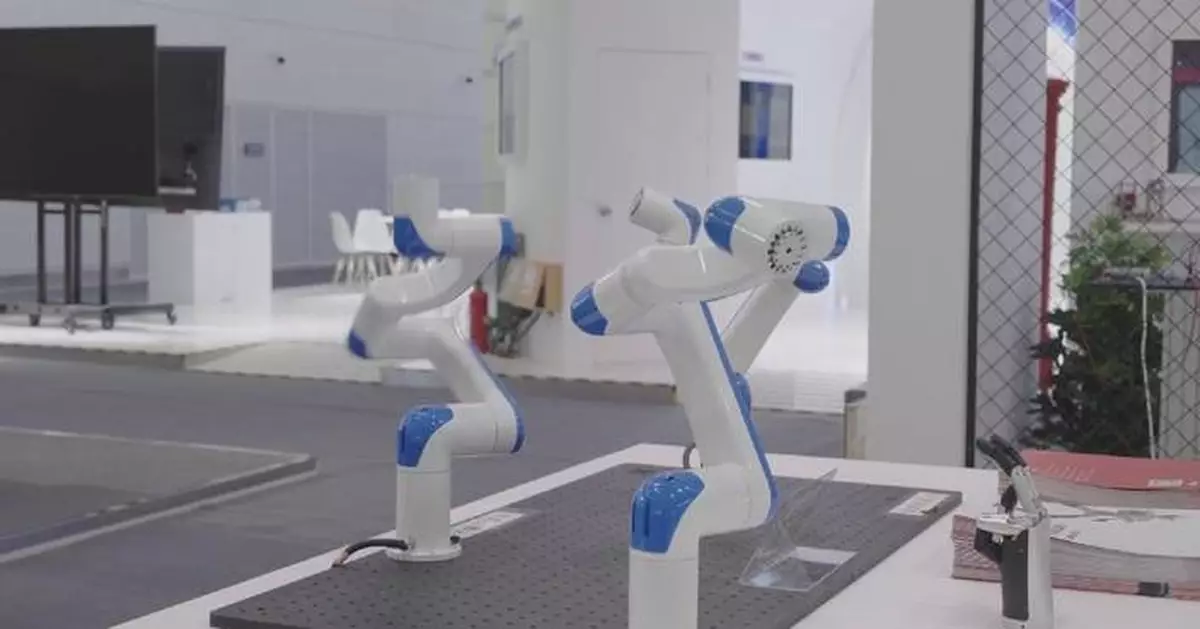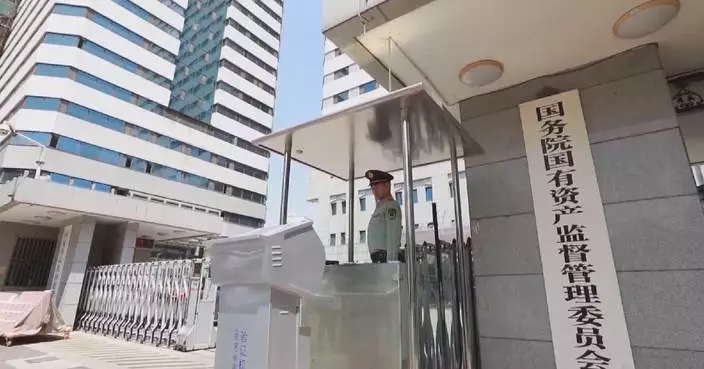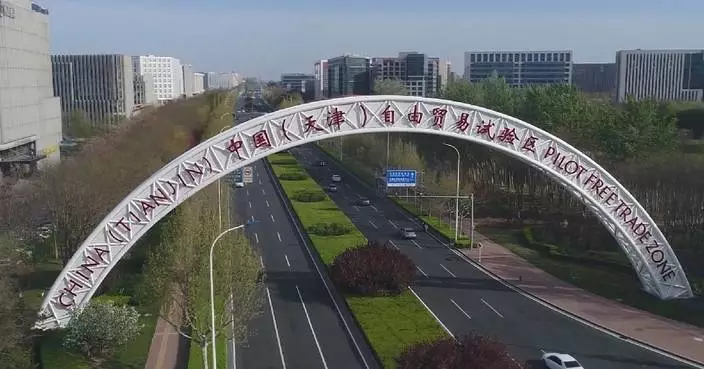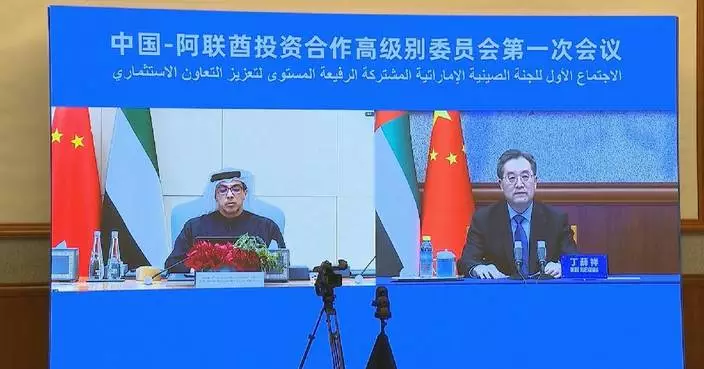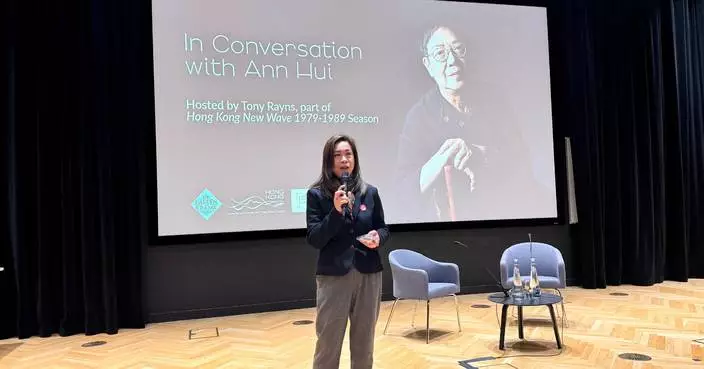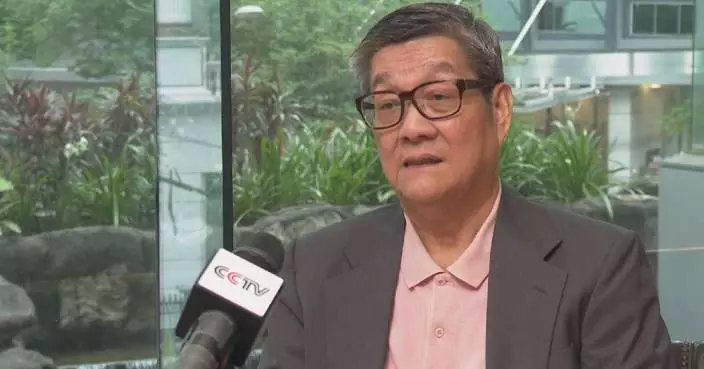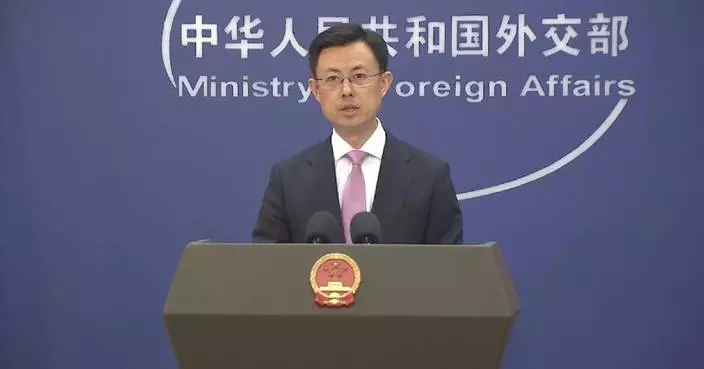The 2024 World Intelligent Industry Expo opened in north China's Tianjin Municipality on Thursday, focusing on cutting-edge fields like artificial intelligence, intelligent connected vehicles, and smart manufacturing.
With the theme of "Intelligence: Extensive Development Space, Sustainable Growth Driver", the expo is jointly hosted by Tianjin and southwest China's Chongqing Municipality, combining the former World Intelligence Congress in Tianjin and the Smart China Expo in Chongqing.
Chinese President Xi Jinping sent a congratulatory letter to the three-day event on the same day.
Covering an exhibition area of 100,000 square meters, the expo features 10 themed exhibition areas showcasing new products, new technologies and new achievements of intelligent technology.
More than 550 enterprises and organizations are participating in the event, with attendees from 49 countries and regions discussing topics related to AI.
Marcus, a German exhibitor, expressed his interest in entering China's vigorously developing low-altitude economy sector.
"This is actually our first time here participating in this exhibition, and it is an honor for us to be here. And we want to participate right now in the very first minute of that new business because China is very, very supportive and helps us a lot in that market as well. That is the reason why we are looking for a Chinese place to find our facility a place, to produce all the equipment and also to the development in China," said Marcus.
The expo will unveil 94 new products, technologies, and achievements, with 48 of them making their debut. Additionally, events and activities like the World Intelligent Driving Challenge and the 2024 International Conference on Smart Sport will be held on the sidelines of the expo.
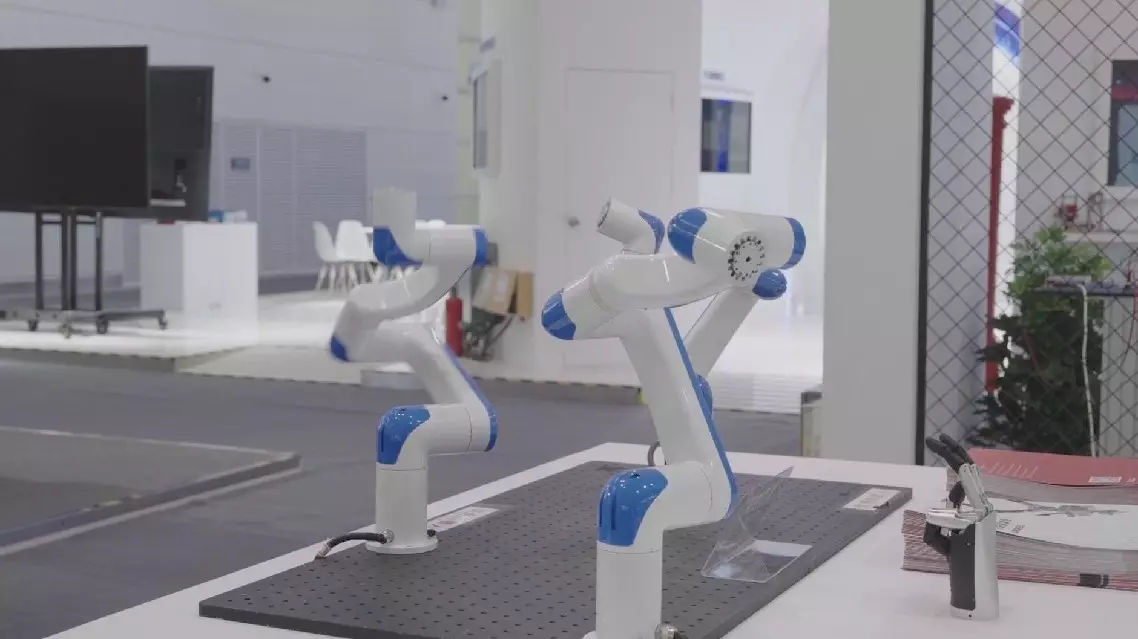
World Intelligence Expo 2024 opens in Tianjin
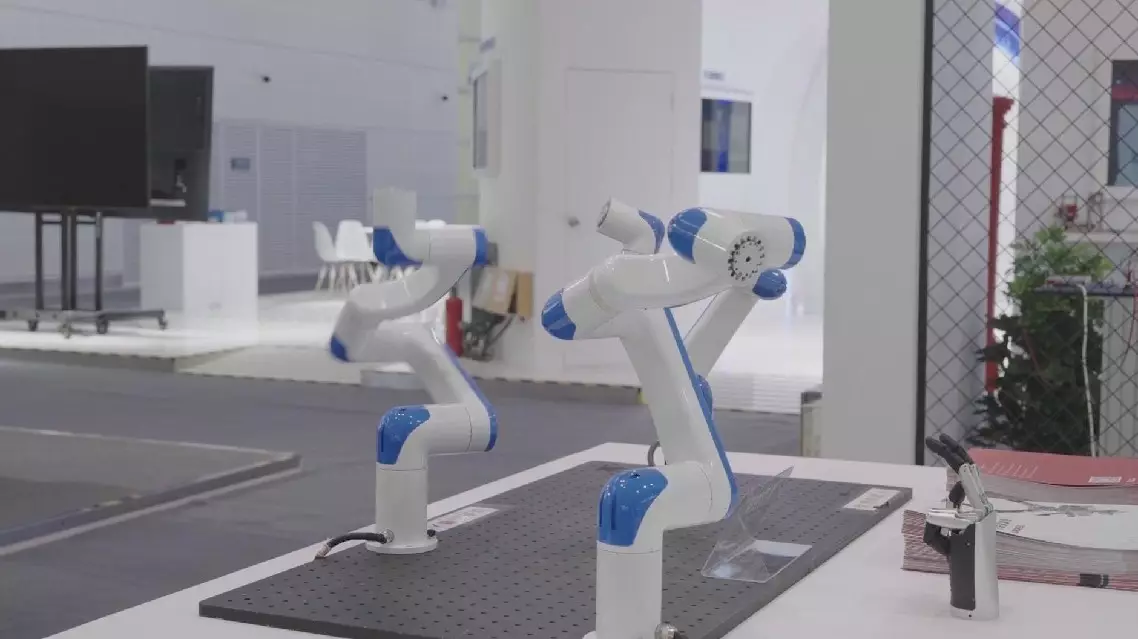
World Intelligence Expo 2024 opens in Tianjin
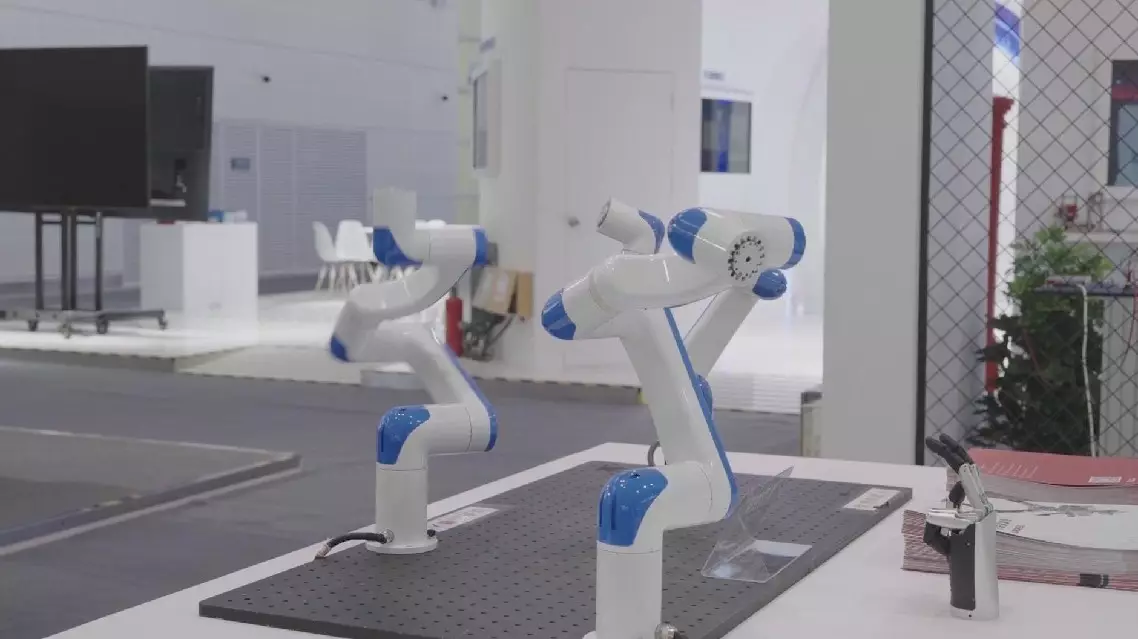
World Intelligence Expo 2024 opens in Tianjin
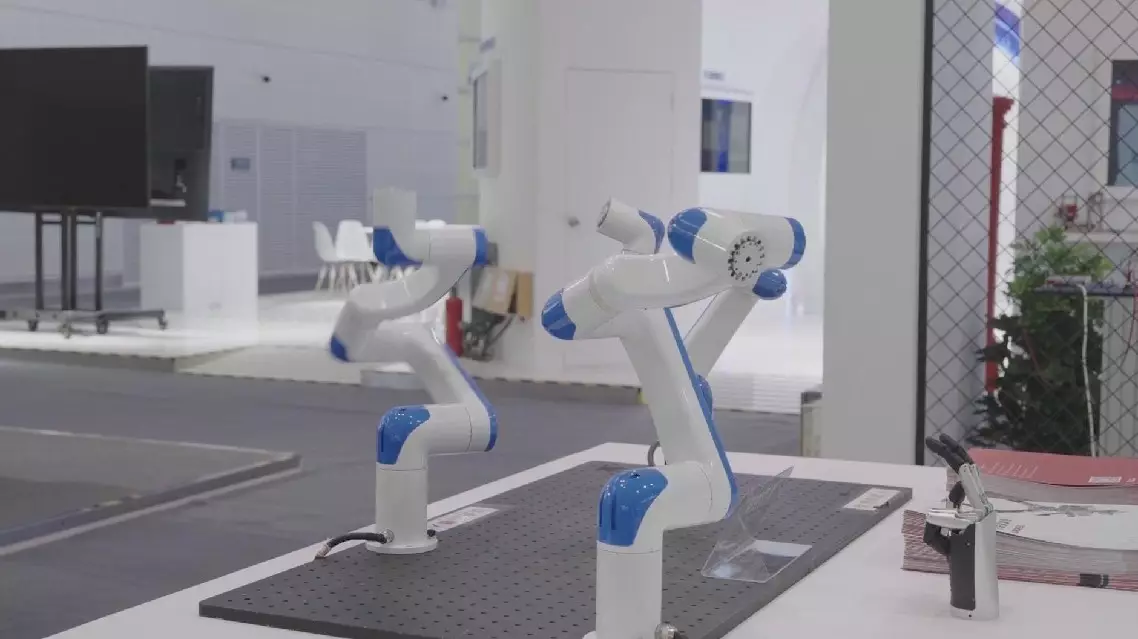
World Intelligence Expo 2024 opens in Tianjin
China's new "silver trains" are transforming senior travel from a logistical hurdle into a seamless adventure, offering onboard AI-powered classes, emergency medical support, and tracking devices, all designed for passengers aged 65 to 70.
Recently in Jinan, east China's Shandong Province, hundreds of excited senior citizens boarded one of China's innovative "silver trains", a groundbreaking travel service designed specifically for elderly passengers.
The train set off on a weeklong journey to Sichuan Province in southwest China, carrying over 400 senior passengers with an average age of 70. Designed for comfort and engagement, the specially configured train offered more than just transportation. Each traveler received a comprehensive guide featuring weather forecasts, outfit recommendations, and a schedule of onboard activities, from AI workshops to traditional Chinese ear therapy sessions.
"I have finally relaxed and gone on a trip. Even though it's my first time, it feels so familiar, just like coming home," said a first-time traveler, reflecting on the welcoming atmosphere.
"They even have group leaders, medical staff, plus opportunities to learn, sing, and join photography contests. They've really thought of everything," said another passenger.
Xu Mei, deputy secretary of China Railway Shandong Culture and Tourism Group, highlighted the rising demand for senior-friendly travel experiences.
"As our living standards have improved, I feel that retirees are now seeking more fulfillment on a spiritual and emotional level. Silver trains are a great way for seniors to travel," she said.
The journey featured cultural visits to historical landmarks such as Huangze Temple and breathtaking natural landscapes like Jiuzhaigou Valley.
For 70-year-old Wang Jingke, a former professor, the trip fulfilled her lifelong dream.
"I have dreamed of this place (Jiuzhaigou Valley). I finally made it," she said.
Meanwhile, enhanced safety measures ensure peace of mind, featuring portable tracking devices for added security.
"Xiaowen, can you hear me?" Wang tested her device, to which the tour guide promptly responded, "I see your location."
Medical support is available onboard, with emergency SOS devices equipped with cords installed throughout the carriages for safety.
"The SOS emergency signal can help with location tracking. There's a rope attached to it. For elderly passengers, especially those who are weak or suddenly fall seriously ill, they can pull the rope. This way, the monitoring center can accurately pinpoint their location, and our doctors can reach the area immediately," explained former physician Li Qiuping.
With China's population aged beyond 60 exceeding 300 million, accounting 22 percent of the total, experts see great potential in such senior-focused services.
Liu Xiangdong, an associate professor of the School of Economics and Management at the University of Science and Technology Beijing suggested future improvements.
"In terms of accessibility and safety, the train can improve the aisle slope, add more accessible restrooms in the future, to reduce the risk of falls for seniors. To accommodate age-related changes in vision and hearing, features like voice-controlled lighting and VR viewing devices could be introduced," Liu said.
As these silver-haired travelers attend classes, make new friends, and explore scenic destinations with tailored support, China's silver trains are redefining what retirement travel can be, turning what was once a challenging experience into a comfortable, enriching adventure.

China's "silver trains" redefine senior travel with customized services






